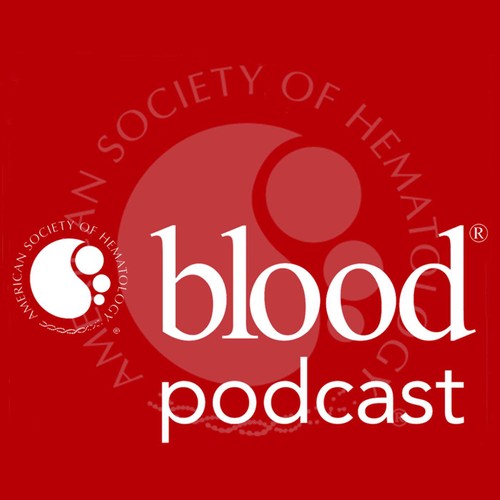
 Blood Podcast
Blood Podcast Bispecific Antibodies in Aggressive B-Cell Lymphoma: Real-World Insights and Future Directions
9 snips
Nov 6, 2025 In this insightful conversation, Dr. Taylor Brooks, a clinician and researcher from the Cleveland Clinic, sheds light on bispecific antibodies like epcoritamab and glofitamab in treating aggressive B-cell lymphoma. He discusses their innovative mechanisms and how they address a critical need for patients with relapsed or refractory diffuse large B-cell lymphoma. Key findings from his study reveal promising response rates and survival outcomes, while also highlighting the necessity for further research on TP53 mutations and future treatment strategies.
AI Snips
Chapters
Transcript
Episode notes
How Bispecifics Work
- Bispecifics (epcoritamab, glofitamab) engage CD20 on B cells and CD3 on T cells to redirect patient T cells to kill lymphoma cells.
- They function similarly despite structural differences and represent a new mechanism beyond chemotherapy.
Questions Behind The Real-World Study
- The study asked whether real-world effectiveness and safety match registrational trials and whether differences exist between the two agents.
- It also assessed which patient features predict success or failure outside trial populations.
Real-World Responses Mirror Trials But Survival Lags
- In 245 patients, response rates (~50% overall, ~25–33% CR) mirrored trials but progression-free and overall survival were shorter.
- Shorter survival likely reflects treating sicker, trial-ineligible patients in routine practice.
